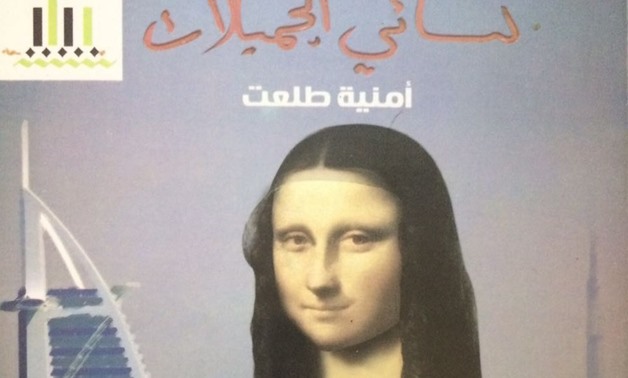
Book Cover (Photo courtesy of Osama Fatim)
CAIRO – 6 September 2017: New women-empowering and daring novel, “My Beautiful Women” by author Omneya Talaat follows the life of four women living in Dubai, who struggle to attain a decent life. Egypt Today sheds light on the author’s attempt to portray the struggles of Arab women.
The four women are from Egypt, Syria, and Lebanon and are gathered in a journey where they confront themselves and struggle in a life that they’re forced to face only because they’re women.
The novel exposes the oppression these women have been subjected to, such as cheating, and abuse, among other things. The oppression they endure comes directly from men as the oppressors, or indirectly as men fail to prevent or protect them from oppression.
The novel poses several controversial and existential questions such as questioning who is the true oppressor women need to face; patriarchy or traditions?
Amal, the novel’s protagonist, managed to take the controversial step of leaving her unfaithful husband while paying the cost of parting with her son. Her father, incapable of accepting her decision and supporting her, or rather protecting her from this abuse, takes up to making her life even harder.
Samira, on the other hand, suffers from slight paralysis in her right hand and leg since childhood due to a defected serum. Caught in a web of self-pity, Samira feels incomplete.
The third charater, Mana, despises her rich family and hates her father’s weakness and inability to protect her from her mother’s overbearing dominance.
Hala, whose only love story was one-sided; is still stuck waiting for her knight in shining armor.
The four women forge a friendship eventually, gaining each other’s confidences slowly. Together, they embark on a journey to express themselves, and resolve their real and imagined problems. They all come out of the experience capable of dealing with themselves and with the obstacles they face.
Samira finally makes peace with her handicapped body and realizes that she is no less of a woman because of it. Manal, who lives a dual life, and pretends to have the perfect marriage when she actually hates her daughter and husband, finally asks for a divorce and gets it.
Amal, on the other hand, finds a man who really loves and understands her, and gets pregnant. Unlike the stereotype commonly known in Arab society where the woman gets dumped and asked to abort, her lover claims full responsibility for her and the child she carries, and offers to marry her. She, on the other hand, decides to never tie herself down again and aborts the baby; a very courageous step for a woman who gets the chance to have a baby with the man she loves. The relationship dies with the abortion.
The novel adopts an extremely strong feminist position against all limits on women’s freedom and sheds light on a free society in Dubai that allows individualism and personal freedom to mature.
Talaat dedicates the novel to the city she has lived in for years and has come to love; she sets the events of her story in Dubai, drawing up on the atmosphere there to relate the issues Arab women face in her novel. Life in the Gulf does not offer many opportunities for friendships or relationships that offer depth or genuineness. Talaat portrays the clientilistic relationships that are common in such a region with the aim to show that these relationships are only formed when benefit can be claimed through them.
While Talaat portrays the real shallowness of the people’s desires and relationships in the Gulf, she nevertheless portrays how she truly admires her city.
The novel’s narration is traditional and carries a deep understanding of men-women relationships. The narration was intended by the writer to give way to her different messages. The novel screams attacks on men for their role in making the lives of the heroines difficult and rendering them incapable of expressing their personalities and dreams.
Talaat exposes society’s sore spots in relationships, in the hopes of remedying the mistakes and allowing more mature relations to be formed. The men in the novel are marginal, yet the writer shows great understanding of how men think, look and deal with the women in their lives.

Comments
Leave a Comment